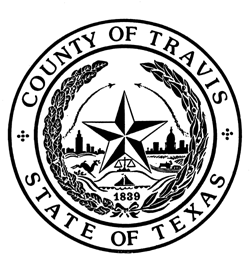
Welcome to the Travis County Model Court for Juvenile Justice and Dual Status Youth
Welcome to the official website of the Travis County Juvenile Court, for the 126th District Court. We understand that involvement with the court system can be challenging, and we are committed to upholding the legal principles of accountability, rehabilitation, and community safety. We are a Model Court, working with the National Council of Juvenile and Family Court Judges (NCJFCJ) and follow the Georgetown University's Center for Youth Justice "Crossover Youth Practice Model."
Our court oversees cases involving delinquency and the needs of Dual Status Youth (those involved in both the child welfare and juvenile justice systems). Our approach is rooted in adolescent development science and trauma-informed care, focusing on providing youth and their families with the resources, treatment, and support necessary for a positive trajectory. We partner with Juvenile Probation, community agencies, and legal advocates to ensure fair and equitable justice for every young person.

The Presiding Judge of the 126th District Court for Juvenile: Honorable Aurora Martinez Jones.
Aurora Martinez Jones is one of the two District Judges in Travis County designated as a Juvenile Court. She has extensive experience advocating for parents and children in the child welfare system as well as advocating for youth in the juvenile justice system. She presides over the Travis County Dual Status Youth Court and runs a trauma-informed court. Judge Martinez Jones is committed to best practices and innovative approaches to supporting the children and families who appear in her court. She is Texas Board Certified in Child Welfare Law and is a Child Welfare Law Specialist, Certified by the National Association of Counsel for Children. She is the current Chair for the State Bar of Texas Child Protection Law Section and just completed 7 years of service on the Board for the National Council of Juvenile and Family Court Judges.

Dual Status Youth Court
The Travis County Dual Status Youth Court is dedicated to interrupting the cycle of system involvement by fostering cross-system collaboration between child welfare and juvenile justice partners. We commit to a holistic, trauma-responsive judicial process that promotes the safety, well-being, and permanent success of every dually-involved youth and family while assuring safety for the community as well.

Mission
To serve Travis County's dual status youth through a unified, trauma-informed judicial framework. We strive to achieve positive, sustained outcomes by:
-
Integrating the efforts of the child welfare, juvenile justice, and community partners.
-
Balancing the youth's best interest, mental health needs, and family connection with community safety.
-
Reducing the reliance on lengthy out-of-home placement and unnecessary detention.
-
Promoting accountability, healing, and successful transition into adulthood.
Providing for public safety by effectively addressing the needs of juveniles, families, and the victims of crime.

Chief Juvenile Probation Officer
Cory J. Burgess


Georgetown University: Center for Youth Justice
Crossover Youth Practice Model
In 2010, the Center developed the Crossover Youth Practice Model (CYPM) to address the unique needs of youth that are at risk of or are fluctuating between the child welfare and juvenile justice systems. These youth are commonly referred to as “crossover youth.”
Learn more about the background of the Crossover Youth Practice Model.
What is the Crossover Youth Practice Model?
A practice model is a conceptual map and organizational ideology that includes definitions and explanations regarding how staff partner with families, service providers, and other stakeholders in the delivery of services to achieve positive outcomes for youth and their families.
The Crossover Youth Practice Model is a nexus between research and best practices that outlines systemic changes youth serving systems can make to improve their ability to serve youth.
The CYPM has four overarching goals:
-
Reduction in the number of youth crossing over and becoming dually-involved;
-
Reduction in the number of youth placed in out-of-home care;
-
Reduction in the use of congregate care; and
-
Reduction in the disproportionate representation of youth of color, particularly in the crossover population
Travis County Model Court for Juvenile Justice and Dual Status Youth
National Council of Juvenile and Family Court Judges (NCJFCJ)
The 126th District Court is a Model Court that is part of a national network of similar model courts. It is supported by the National Council of Juvenile and Family Court Judges, which provides organizational support and technical assistance. In working with the NCJFCJ our Model Court serves as a laboratory for systems change and improvement with strong judicial leadership and effective collaboration as essential points for success.
Maria Gonzalez-Love
Juvenile Clerk
126th District Court